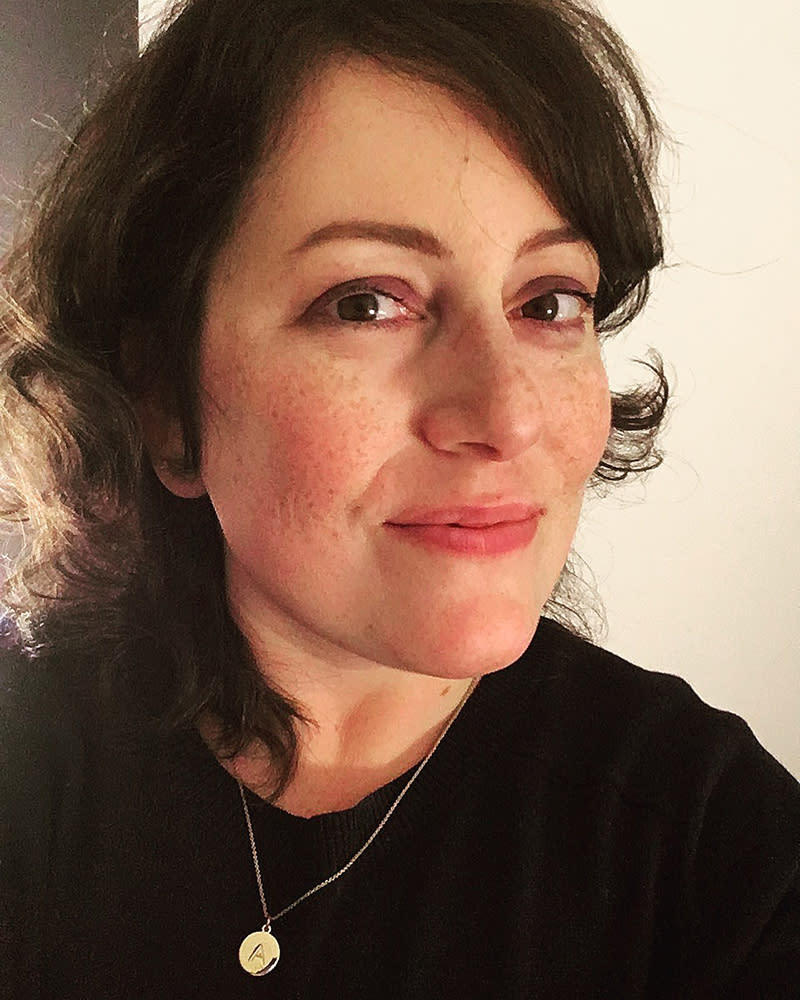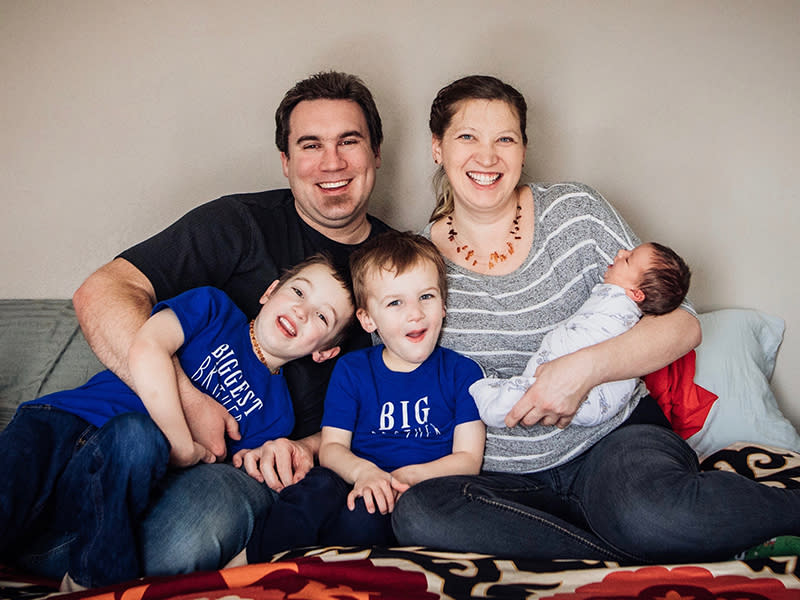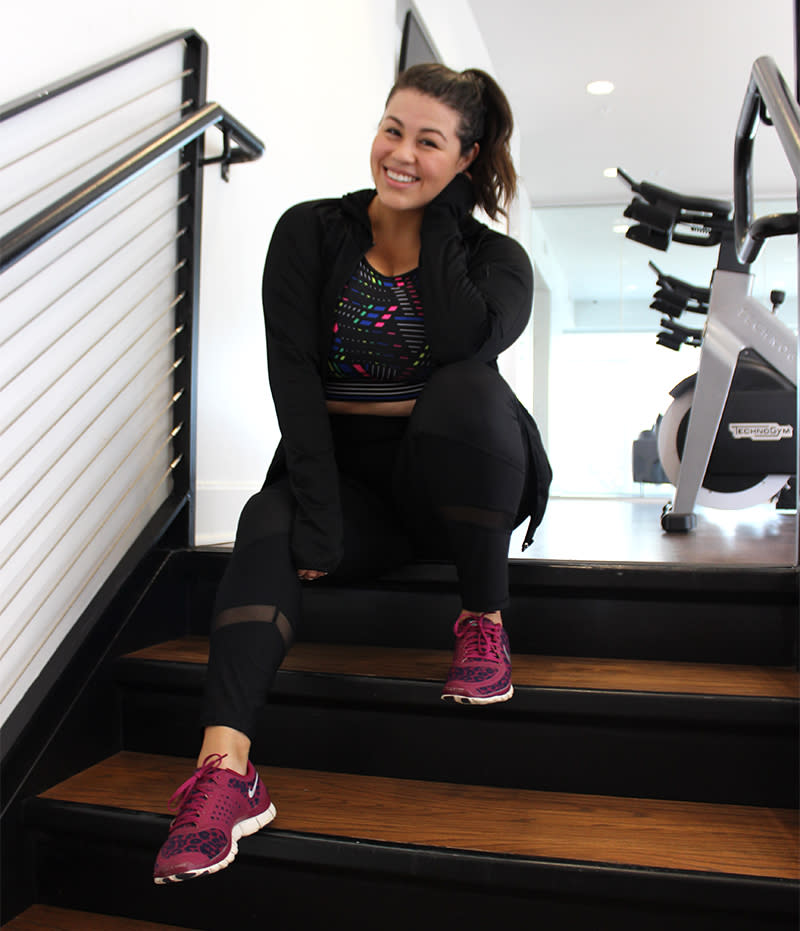What it’s like to live with painful arthritis when you’re young: 'Your body feels like a bag of bricks that can’t move right now’

When you think of arthritis, you most likely picture an octogenarian hobbling around. But at least 54 million Americans suffer from arthritis, according to the Arthritis Foundation, including young adults. These conditions — such as rheumatoid arthritis (RA) or psoriatic arthritis (PA) — occur when the body actually attacks its own joints, causing pain, swelling, fatigue and, if left untreated, permanent damage.
But perhaps just as bad as these conditions’ debilitating effects is the stigma associated with these diseases. Here, four women share how a diagnosis of RA or PA has affected both their personal and professional lives:
They push through extreme pain.
When Meg Maley, 28, was diagnosed with psoriatic arthritis about a decade ago, she kept quiet about it to friends and potential boyfriends. “It wasn’t the cool thing to have — I always viewed arthritis as an older person disease, and I didn’t know anyone my age who had it,” she says. As a dance major in college, she didn’t tell her instructors and pushed through her classes, even when she was in excruciating discomfort. She arranged class schedules around her treatment infusions, so she’d be able to leave campus and return without anyone noticing.
“I had three knee surgeries without telling anyone other than my immediate family,” Maley says. Her “secret” finally was revealed three years ago, when Maley went on the CBS reality show “Big Brother.”
Even though no one on the set realized it except for the one producer who administered her infusions, viewers who also had conditions like psoriatic arthritis figured it out. “People were watching me all day on the TV or internet and could tell from my facial expressions and demeanor that I was going through a flare-up, and they noticed the scar on my knee,“ she recalls. “They could see me waking up in the middle of the night limping to the bathroom to pop a couple Advil. But they weren’t judgmental. They thought it was awesome that my condition didn’t keep me from participating.”

They’ve been discriminated against at work.
Angela Lundberg, 40, a photographer and writer in Minnesota who was diagnosed with rheumatoid arthritis at age 18, ended up getting fired from a temporary office job several years ago due to her condition. “One of my tasks was stuffing envelopes, and I got reprimanded for not doing it fast enough,” she recalls. “I explained that I had arthritis in my wrists due to RA, so they sent me home early and called my temp agency and told them they didn’t want me back.”
Since then, Lundberg hasn’t gotten any more work from that agency. “I’ve never gone into a job letting my supervisor or co-workers know that I have RA,” she says. “I don’t want to be judged, or thought of being unreliable or weak and unable to do the job.”

They tend to gravitate towards flexible work choices.
The unpredictability of RA — you never know when you may get a flare-up — means that it’s hard for many people to work a more traditional 9 to 5 office desk job. “Since I often have a lot of doctor’s appointments and mornings are hard for me, it’s almost impossible for me to work full time in an office,” says Lundberg. She has found she often supplements her creative freelance work by doing temporary jobs. “I can handle a full-time schedule for a few weeks, but then I need a break,” she explains.
They get “blamed” for having an autoimmune disease.
Mariah Leach, 35, a writer and RA educator in Lewisville, Colo., was looking forward to joining a new mom support group after the birth of her first child six years ago. But the first one she went to didn’t provide quite the bonding she expected. “At our first meeting, I brought up that I had RA and some of the issues surrounding it — for example, experiencing severe hand and wrist pain when changing diapers,” she recalls.
The leader of the group took her aside and asked her for her email address. “I was all excited — I thought she wanted to strike up a friendship, and I was looking forward to having coffee with someone new,” she says. The woman sent her an email filled with so-called “holistic” miracle cures. “She basically told me that I was choosing to be ill by not treating my body properly,” Leach remembers. “Normally, I would have laughed something like that off, but it was at a vulnerable time, when I was newly postpartum, and it hit me hard.”

Since then, Leach has established a website, Mamas Facing Forward, geared towards moms suffering from chronic disease. “There’s a lot of judgement in the mom world to begin with, and on top of that, when you have a condition like RA, it’s something that other moms simply don’t understand,” she says.
Maley has a shelf in her medicine closet of lotions and creams people have given her. “I can’t tell you how many times I’ve been asked if I’ve gone gluten-free, as if that was the cause of my symptoms,” she says. But while the products and advice may be well intentioned, they often send the wrong message. “There’s no magic vitamin to take, or no magic meditation technique that will make my psoriatic arthritis go away,” says Maley. “What worked for someone’s aunt to ‘cure’ their arthritis may not work for me.”
In addition, many people with RA or PA find that their medications lose their effectiveness, so they have to switch their treatment frequently. “When your go-to drugs aren’t working, it’s hard to be lectured to about diet and lifestyle when you know that’s not the cause of your pain,” Maley adds.
People just don’t get it.
When Janette Artea, a 28-year old public relations executive in Dallas, tells casual friends or co-workers that she’s too wiped from her lupus and rheumatoid arthritis to make it to an after work happy hour, they look at her strangely. “They don’t understand why I don’t just drink a Red Bull and get on with it,” she says. “It’s hard to explain to someone who doesn’t live with an autoimmune disease that your body feels like a bag of bricks that can’t move right now.”
Even more painful, some of these friendships fall by the wayside after a disease like RA is diagnosed. “While I had a few people that stuck by me and were understanding, I lost some friends in that period as well,” says Leach, who was diagnosed with RA a decade ago, at age 25. “Some of them I lost more obviously: They completely didn’t understand and thought I was faking it. But most of the time, it was just because I kept declining invitations to go out, because I didn’t feel well, and eventually those invitations just stopped coming.”

Autoimmune arthritis affects how people view themselves.
Almost 75 percent of people with RA report “internalized stigma,” or the absorption of negative attitudes about RA, according to a 2016 study published in the medical journal BMC Musculoskeletal Disorders. Another 2014 study published in the Annals of the Rheumatic Diseases found that low self-esteem was common among patients with RA, especially those with more serious, treatment-resistant forms. “There’s a feeling that your body is betraying you to a certain extent,” says Leach. “When I was diagnosed, I was an extremely active water polo player, a sport I had to give up. It’s hard to recognize that you’re still the same person, even if your body has somewhat changed.”
Over the years, she’s worked hard to counter that little negative voice inside her head by advocating fully for herself, as well as for other patients with RA. Staying acting whenever possible also helps: A 2016 study in the medical journal Joint Bone Spine, found that people with RA who exercise most days of the week have better self-esteem and less depression than those who don’t.
Read more from Yahoo Lifestyle:
Follow us on Instagram, Facebook and Twitter for nonstop inspiration delivered fresh to your feed, every day.

 Yahoo Finance
Yahoo Finance 